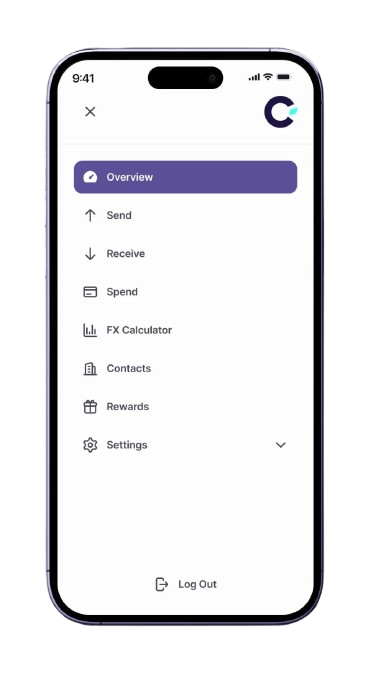Company
Why settlement speed has become the make-or-break factor for African trade and how smart importers are fighting back.

Here's a number that should terrify every African importer: 52% of African businesses are operating in a constant cash flow crunch, not because they're unprofitable, but because their money is trapped in transit for weeks at a time.
While you're waiting 5-7 days for payments to clear, your competitors in São Paulo are settling with the same Chinese suppliers in under 24 hours. Guess who's getting priority when production capacity is tight?
While the global economy moves at internet speed, African importers are still fighting a cash flow war with weapons from the banking stone age. You’re depending on a system that was never built with them in mind. And it’s not only costing time, it's systematically destroying your competitive position.
Most importers focus on the obvious costs—those 8.9% transaction fees that turn a $100,000 payment into $91,100. While these fees were way more than the global average in 2020 (6.8%), the hidden costs are where the real damage happens.
Every day your payment sits in transit is another day of:
What most importers don't realize is that the difference between a 7-day settlement and a 24-hour settlement isn't just 6 days, it's what tips the scales against you from being a preferred customer to being managed as a risk.
The global supply chain doesn't wait for African banking infrastructure to catch up. Chinese manufacturers can choose between an importer in Lagos who pays in 7 days and one in São Paulo who pays in 24 hours.
This isn't just theory. Recent data shows that businesses switching from traditional banking rails to faster payment systems can unlock $11.6 billion in working capital that would otherwise sit idle. For individual importers, this translates to:
The question isn't whether fast payments matter, it's whether you can afford to keep operating without them.
While traditional banks route your payments through correspondent banking networks (think multiple pit stops across different time zones), stablecoin-powered platforms like Cedar Money take a direct route.
Here's how it works: Instead of your Naira traveling through multiple banks across three continents, losing time and value at each stop, Cedar's stable-coin rails convert your payment once and deliver it directly to your supplier within 24 hours.
The result? T+1 settlement that turns your accounts payable into a competitive edge rather than a cash flow anchor.
At the end of the day, it's less about the technology itself and more about what the technology enables. Stable-coins aren't just faster; they're predictable. When you can guarantee payment within 24 hours instead of "3-7 business days," you're not just moving money faster, you're building a different kind of business.
Smart African importers are already using settlement speed as a competitive moat. They're approaching suppliers not just with competitive prices, but with a value proposition that goes beyond cost: certainty and speed.
When you can guarantee T+1 payment, you're not just another customer, you're the customer suppliers want to work with. This translates into:
The importer who controls payment speed controls supplier relationships. Those who understand this aren't just solving a payment problem, they're building a structural advantage that compounds over time.
Here's where it gets interesting. Fast payments don't just solve the payment problem, they unlock the entire trade finance ecosystem.
When Cedar enables T+1 settlements, you're not just getting faster payments. You're getting:
This ecosystem approach is what separates platforms like Cedar from traditional payment processors. Instead of just moving money faster, you're accessing a complete infrastructure designed around the needs of African importers.
The African import landscape is at an inflection point. While most businesses are still fighting yesterday's cash flow battles with yesterday's tools, a small group of importers is already operating with tomorrow's infrastructure.
These early adopters aren't just saving time and money, they're building businesses that operate fundamentally differently. They're turning payment speed into customer service, cash flow predictability into growth capital, and settlement certainty into supplier relationships that competitors can't match.
The question for every African importer is simple: Are you going to be disrupted by businesses with better payment infrastructure, or are you going to be the one doing the disrupting?
Because while your competitors are still explaining to suppliers why their payments are delayed, you could be explaining to your customers why your shelves are always stocked.
Ready to turn settlement speed into your competitive advantage? Cedar Money's T+1 payment infrastructure helps African importers process up to $30M daily with predictable, transparent settlement. Because in today's economy, the business that moves fastest wins. Talk to us today!

